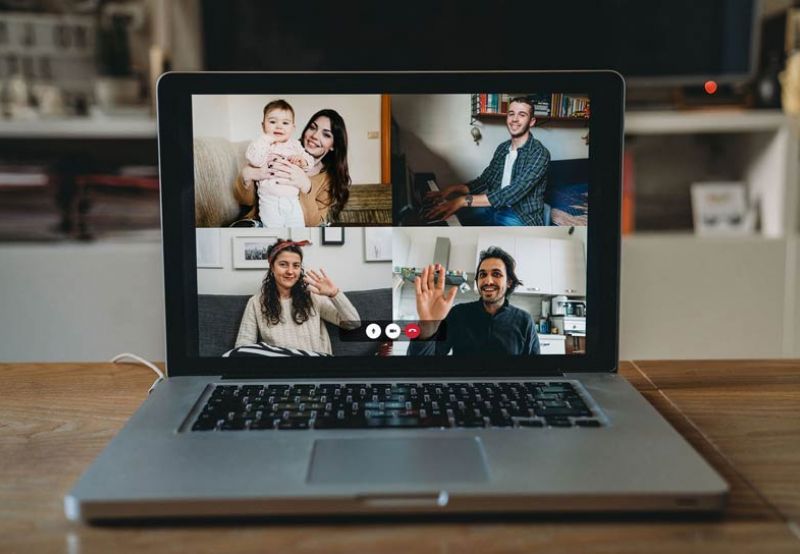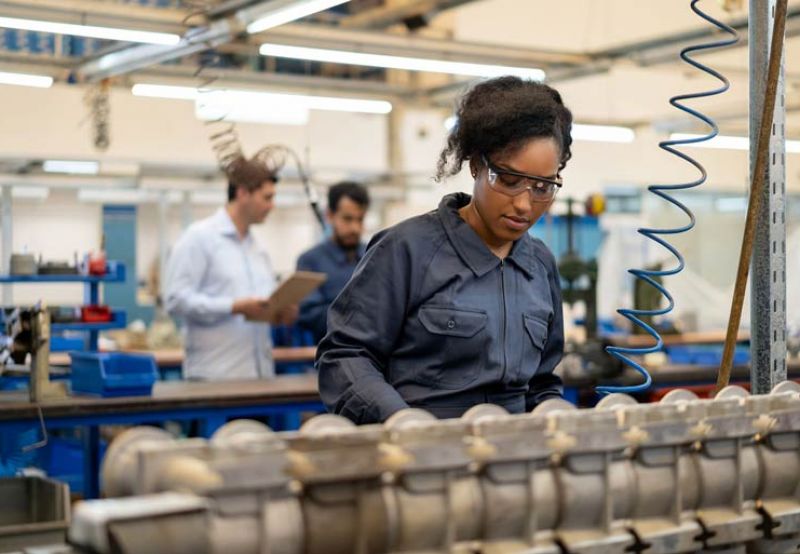
Highlights
- Despite the remote work trend, 70% of job seekers still prefer in-person interviews for a better candidate experience.
- In-person interviews foster stronger relationships and deeper understanding between Candidates and Recruiters.
- Recognizing different personality types and preferences when choosing interview methods is crucial.
- The choice between interview methods varies by industry and role, with technology favoring remote interviews and on-site work benefiting from in-person assessments.
We all know that the move to remote work because of the pandemic has shifted the Candidate experience in more ways than one, with many people now expecting a remote component/hybrid model when looking for a new job.
So, if you’re like us, you’d be surprised at these results from the American Staffing Association: 70% of people actually preferred in-person interviews as opposed to video interviews (17%) and phone interviews (9%). Though most people now prefer having a remote component to their jobs, this isn’t the case with interviews!
As it turns out, the face-to-face interaction with Recruiters is what gives job seekers a better Candidate experience. Even when we did our own research, more than half of people cited personal interaction as the main reason they preferred in-person interviews.
What interview method to use is a question many employers are now facing. Below, we’ve outlined six considerations every employer should think about when they’re deciding to bring back in-person interviews.
Redefining Job Postings: More than Just Words
A well-crafted job posting is the most important talent attraction communication. It goes beyond outlining the responsibilities, duties, and expectations of a role—it's a gateway to capturing the attention of qualified Candidates.
1. Building stronger relationships
Many people cite the number one reason of going back to in-person interviews is the lack of relationship-building between Candidates and Recruiters. At TalentWorld, our mission is to build meaningful relationships between Candidates and Recruiters, so of course, this aspect is very important to us and we want to choose the best interview method that enhances relationship-building.
There’s just something different about a Candidate talking to their Recruiter face-to-face that can make all the difference in the job search. As in-person interviews generally take more time, it’s easier to build rapport and trust. Putting a real face to a person helps to get to know the Candidate deeper, which can help Recruiters understand the fit better and speed up time to fill.
2. Soft-skill assessment
The fact is, Recruiters can read people much better when they’re in person versus over a screen. You can see how the person will present themselves in a new environment, read their body language to see if they’re confident, and get to know the Candidate’s personality on a deeper level.
For example, most jobs require a Candidate to have stellar communication skills. Having an interview online may take away from the Recruiter being able to assess this skill clearly because you just don’t know what's happening on their screen or if the technology takes away from them being able to communicate effectively. However, it’s on a job-to-job basis if this is true. Fully remote jobs should place more emphasis on how Candidates present themselves over the screen.
3. Less prone to error
Aside from a Candidate being late, in-person interviews are less likely to have any problems. Imagine all the things that could go wrong with a video interview! Internet connectivity issues, computer issues, poor video quality, background noise or distractions, the lack of tech-savviness on the part of the Candidate, and the list can go on and on. These issues, though they seem small, can make or break the chances of finding the perfect Candidate for a role. And even though we know that these issues can happen to anyone and it’s not their fault, it can pose problems for roles with quick turnaround time.
4. Geography
Many of the best Candidates are just out of our reach because they live far away. Whether that be because they’re in the process of moving to the city you’re hiring in, or because they don’t have a reliable way to get to the interview. Putting these restrictions in place for Candidates applying to roles that don’t require them to be in office, is limiting the talent pool substantially. Of course, if a job requires an in-person component, then it is necessary to have geographic limitations.
5. Different personality types
There are going to be times when you come across Candidates who are just more comfortable doing an interview via the phone or video. It may be because they’re more comfortable in their own environment, or they’re just nervous to meet face-to-face. It’s a Recruiter’s job to assess the role they’re interviewing for to see if they absolutely need to meet with this person face-to-face.
6. Less flexibility
It’s hard to take time off work to commute to an interview. Your Candidates have obligations outside of their job search that may make it hard for them to physically get to where you’re interviewing, but that doesn’t mean they’re not right for the job! Having an online interview may allow for greater flexibility on the part of the Candidate, so they can fit your interview into a 30-minute time slot, versus taking a longer period of time to account for the commute.
Another thing to consider is that in-person interviews also make it harder for Recruiters to have better time flexibility. With online interviews, you can make sure you’re staying on a strict schedule to make sure that all the interviews you have are done when you need them to be. With in-person interviews, time may be harder to track especially if you get lost in conversation with the Candidate.
It's not a one-solution problem.
In a time of rapid change in the Talent Acquisition field, it’s time for companies and Recruiters to start thinking about what’s best for their business and how they’re going to effectively fill their vacant positions.
The answer of which interview method to use is different for every company and even every role within that company! For many industries like technology, remote work and remote interviews may be ideal due to the nature of the work and the ability to get top talent across geographical regions. But for work that requires you to be on-site, such as light industrial, it’s best to stick to in-person so that the Candidates can get a better sense of their work environment and Recruiters can assess their skills better.
Still don't know which interview method to use? Ask us!
At TalentWorld, we understand the complexities of hiring top talent, fast. And our Recruiters are experts at building meaningful relationships, on or offline. With TalentWorld as an extension of your hiring team, you can be sure that you have the right Candidates working for you, always. Contact us today to see how we can help you with all your hiring needs.





